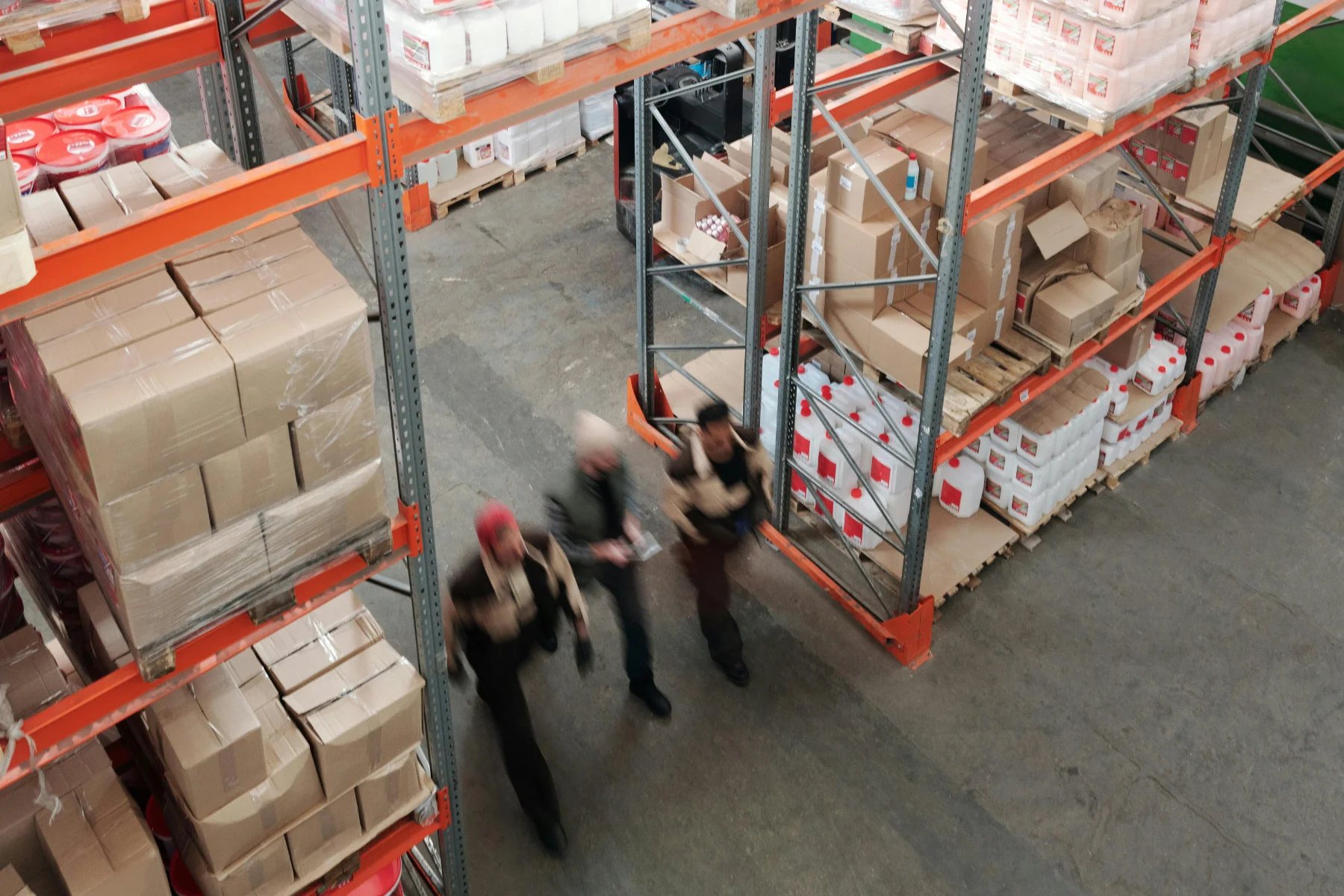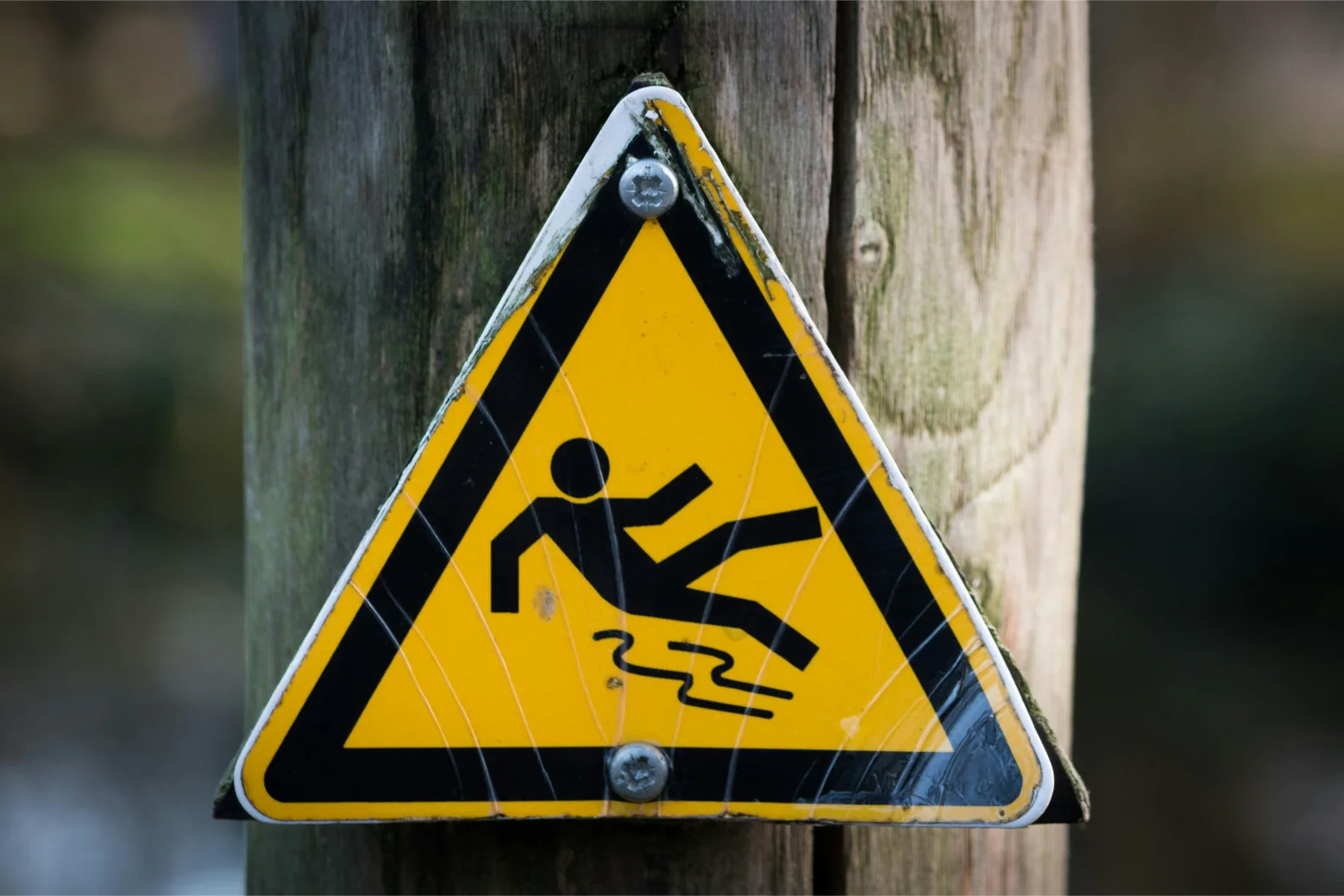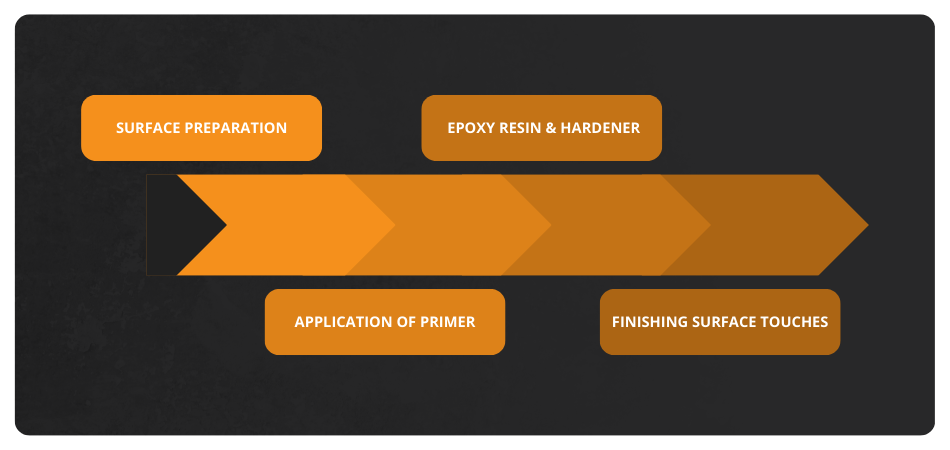Epoxy flooring is celebrated for its exceptional strength and adaptability, which enable it to excel in a range of demanding environments. Formed from a combination of resins and hardeners, it results in a seamless surface that can endure severe wear and tear. This makes it an ideal choice for not just industrial settings, but also commercial and residential areas where durability and low maintenance are crucial.
Different variants of epoxy flooring, such as self-levelling, mortar, quartz-filled, and anti-static types, serve distinct purposes tailored to various needs and operational demands. Self-dispersing epoxy, for instance, is engineered for areas with heavy traffic, offering enhanced durability. Each type of epoxy flooring coating comes with its own advantages, aesthetic qualities, and specific maintenance guidelines, underlining its utility and efficiency across a broad spectrum of applications.
Made from a mixture of hardeners & resins
Epoxy flooring is crafted from a chemical blend of resins and hardeners, which, when mixed together, initiate a chemical reaction resulting in a durable, resilient concrete surface. Known for its robustness, offering spaces a glossy, high-performance finish. Its unique formulation enables it to bond securely to a variety of substrates, positioning it as an ideal choice for environments that require strength and longevity.
From the rigorous demands of garage floors to the daily wear and tear of residential kitchens, there are a range of benefits of epoxy flooring. It easily withstands heavy traffic, chemical spills, and water exposure, all while looking great.

Popular in commercial and industrial settings
Epoxy flooring has emerged as a preferred choice in commercial and industrial settings due to its outstanding durability and capacity to endure heavy foot and vehicular traffic. Its resilience against chemicals, stains, and water positions it as an ideal option for spaces like factories and warehouses. Furthermore, the ease of cleaning and low maintenance demands of epoxy flooring make it a cost-effective solution for business owners.
The seamless and sturdy nature of this flooring not only assures a safe work environment but also aids in upholding a clean and professional look in various commercial and industrial settings.

Epoxy floors in residential settings
Yes, epoxy flooring has found its way into residential settings, celebrated for its durability and aesthetic appeal. Its versatility extends its use from garages to kitchens, living spaces, and even bathrooms, offering a seamless and glossy finish that elevates the home’s aesthetic. Epoxy floors offer a range of customisation options, from solid colours to intricate patterns, allowing homeowners to tailor their flooring system to their home’s style.
Beyond its beauty, the ease of maintenance and exceptional longevity make epoxy resin flooring a compelling choice for those seeking a blend of practicality and style in their home environment.
Epoxy floor coatings are highly customisable
Epoxy flooring opens up a wide array of customisation options. For a sleek, monochromatic look, an epoxy flooring coating in solid colours offers a clean and uniform appearance. Those seeking a bit more flair can opt for decorative patterns, such as flake or metallic finishes, which add texture and depth to the flooring.
For a truly unique touch, custom designs can be embedded directly into the epoxy, enabling the inclusion of logos, artwork, or bespoke patterns. This flexibility makes epoxy flooring an attractive choice for anyone looking to enhance their space with a durable, yet visually appealing, surface.
A variety of safety benefits
Epoxy flooring significantly enhances safety across various settings, thanks to its thoughtful features. By integrating anti-slip additives, epoxy floor coatings dramatically reduce the risk of slips and falls, especially in areas that may encounter spills or wet conditions. Additionally, its reflective surface boosts visibility in dimly lit environments, an essential aspect for ensuring safety in places like industrial warehouses.

These safety-oriented characteristics, combined with epoxy’s inherent durability and wear resistance, make it an ideal choice for prioritising safety without sacrificing style or functionality.
Considerations when choosing an epoxy-coating flooring system
Before opting for epoxy flooring, several critical aspects need to be carefully evaluated to ensure it meets your specific requirements. Initially, it’s vital to assess the condition of the existing concrete floors. Damaged concrete floors with cracks or moisture issues could compromise the epoxy’s adhesion. Another important factor is the installation and curing time; this process can affect daily routines, particularly in busy commercial spaces, thus planning for potential disruptions is essential.
Upfront investment & ongoing maintenance costs
Additionally, evaluating the costs—both the upfront investment and the long-term maintenance expenses—is crucial. Comparing these factors with other flooring options will help in making an informed decision, ensuring that the chosen solution offers both aesthetic and functional benefits while being economically viable over its lifespan.
What are the steps involved in installing epoxy flooring?
The installation of epoxy flooring is a detailed process designed to ensure a durable and visually appealing finish.

Step 1: Surface Preparation
The first step involves surface preparation, which is critical for creating a seamless surface. This stage entails cleaning, repairing, and levelling the existing floor.
Step 2: Application of Primer
Following this, an application of a primer is carried out to significantly improve the adhesion between the epoxy material and the floor surface.
Step 3: Application of Epoxy Resin & Hardener
The next phase sees the mixing and applying of the epoxy resin and hardener, typically executed in several layers to achieve the optimal thickness and durability.
Step 4: Finishing Touches
The process concludes with finishing touches, such as the addition of UV protection or a topcoat, which not only extend the floor’s lifespan but also enhance its aesthetic appeal.
Each step is essential in securing a high-quality and long-lasting epoxy flooring installation.
Epoxy flooring has exceptional longevity
Epoxy flooring stands out for its exceptional longevity, capable of enduring for decades with the right installation and care. Its durability is influenced by the volume of traffic and exposure to harsh substances it experiences. In settings with intense foot traffic or regular contact with chemicals, the floor might exhibit wear sooner but remains a highly durable option.

Consistent maintenance is essential
Through consistent maintenance and appropriate protective measures, the lifespan of an epoxy floor can be significantly prolonged, establishing it as a cost-effective and dependable flooring solution for a wide range of applications.
Final Thoughts
In summary, epoxy flooring emerges as an exceptionally robust and versatile choice across industrial, commercial, and residential settings, earning accolades for its durability, maintenance ease, and aesthetic flexibility.
From heavy-duty applications in industrial environments to stylish implementations in homes, its ability to resist wear, chemicals, and stains while offering a wide range of customization options makes it a standout option. Safety features such as anti-slip additives and the potential for enhancing visibility further underscore its practicality.
Although considerations like installation time, substrate condition, and cost must be weighed, the long-lasting nature and broad utility of epoxy flooring make it a wise investment for anyone seeking a resilient and attractive flooring solution.
As more users discover its benefits and versatility, epoxy flooring is likely to continue gaining popularity and transforming spaces with its unique blend of style and functionality.
